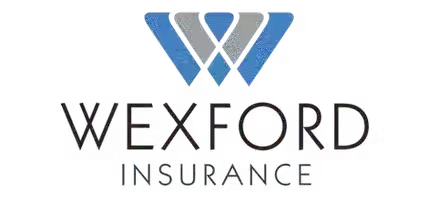How to Manage Routes and Schedules for Maximum Efficiency
- Nate Jones, CPCU, ARM, CLCS, AU

- Sep 23, 2025
- 2 min read
Efficient route and schedule management is the backbone of a successful garbage truck business. Whether you're servicing residential neighborhoods or commercial zones, optimizing your fleet’s movements can reduce fuel costs, minimize wear and tear, and improve customer satisfaction.

In this blog, we’ll explore best practices for managing garbage truck routes and schedules—and how Wexford Insurance helps protect your operations.
1. Use Route Optimization Software
Manual route planning is time-consuming and prone to inefficiencies. Modern route optimization software uses real-time data and algorithms to:
Minimize travel time and fuel consumption
Increase route density (more stops per route)
Reduce driver fatigue and vehicle maintenance
Adapt to traffic and service changes instantly
Tools like Basestation and OptimoRoute allow dispatchers to plan, modify, and update routes in minutes. Drivers receive updates directly through mobile apps, ensuring everyone stays aligned.
2. Collect and Analyze Data
Efficient scheduling starts with understanding your service area. Use sensors and tracking systems to gather:
Bin fill levels
Waste generation patterns
Traffic conditions
Disposal site proximity
This data helps you adjust routes dynamically and allocate resources effectively.
3. Plan Routes to Minimize Left Turns and Idle Time
Left turns increase accident risk and delay operations. Smart routing minimizes these turns and avoids congested areas. Also, reducing idle time lowers fuel usage and emissions.
Best Practice:
Design routes that loop efficiently and avoid backtracking. Use GPS and telematics to monitor driver behavior and adjust routes as needed.
4. Schedule Based on Waste Volume and Driver Availability
Not all areas generate the same amount of waste. Schedule pickups based on:
Historical waste volume data
Seasonal trends (e.g., holidays, events)
Driver shifts and truck availability
Dynamic scheduling ensures timely pickups without overloading trucks or underutilizing resources.
5. Monitor Routes in Real Time
Real-time tracking allows dispatchers to:
Monitor route progress
Anticipate delays
Reassign stops if needed
This flexibility improves service reliability and helps avoid missed pickups.
6. Insurance Coverage for Garbage Truck Companies
Efficient routing reduces risk - but insurance is still essential. Garbage trucks operate in high-risk environments, and coverage protects your business from costly claims.
Wexford Insurance offers tailored policies for garbage truck companies, including:
Auto Liability Insurance – Covers bodily injury and property damage
Physical Damage Coverage – Protects trucks from collisions and theft
General Liability Insurance – Covers non-driving incidents
Pollution Liability Insurance – Covers environmental risks from spills
Workers’ Compensation – Required for employee injury protection
Equipment Breakdown Coverage – Covers hydraulic and compactor failures
Whether you're a new venture or expanding your fleet, Wexford Insurance helps you stay compliant and protected.
Final Thoughts
Managing garbage truck routes and schedules efficiently is key to reducing costs, improving service, and growing your business. With smart software and reliable insurance from Wexford Insurance, you can streamline operations and protect your assets.
Contact Wexford Insurance to explore coverage options tailored to your fleet.




